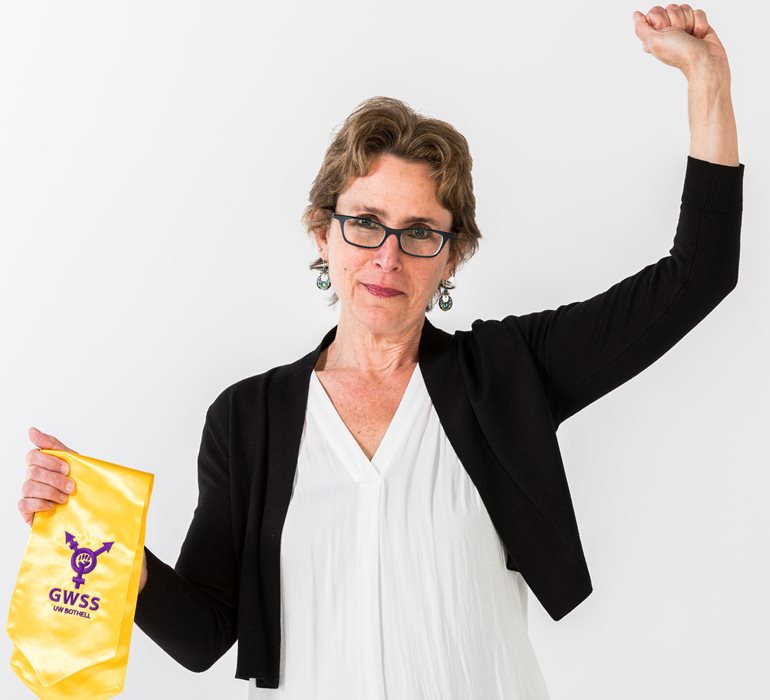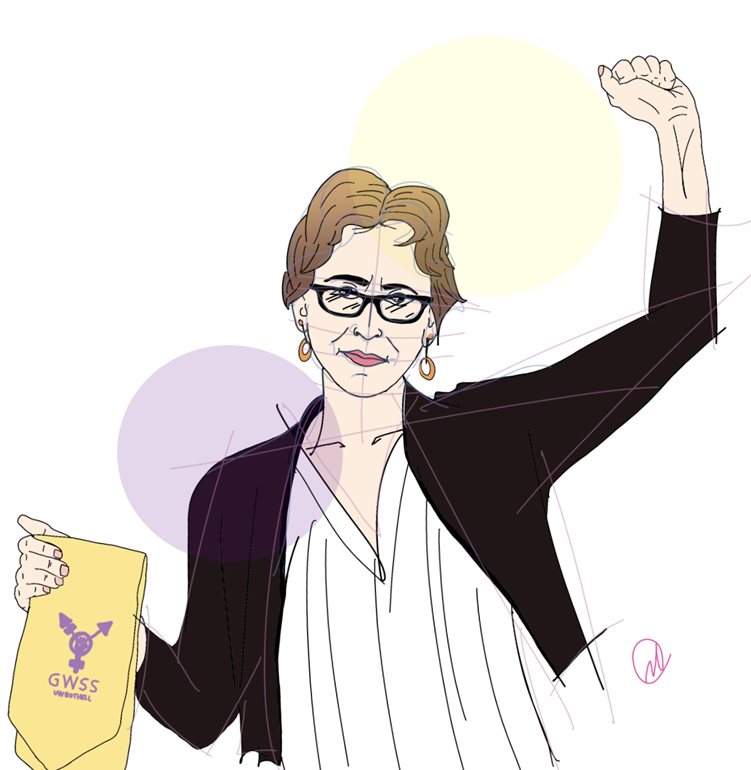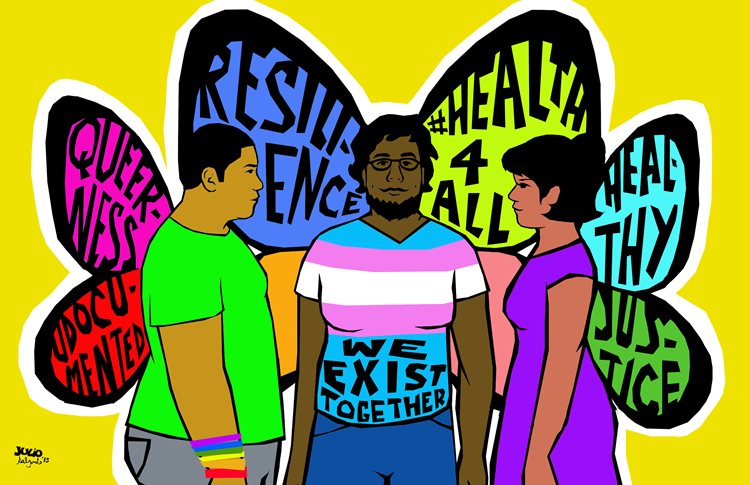
By Elisabeth Schnebele
The discipline now known as Gender, Women & Sexuality Studies is celebrating its 50th anniversary worldwide this year. At the University of Washington Bothell, Oct. 26, 2020, will mark the four-year anniversary of the Gender, Women & Sexuality Studies major and minor.
Julie Shayne, a teaching professor in UW Bothell’s School of Interdisciplinary Arts & Sciences and faculty coordinator of GWSS, had a goal to develop the major on campus since she started at the University in 2007. In 2014, she became one of the committee members charged with creating the degree program. It officially launched in 2016. Since then, 18 students have graduated with the major, and 73 students have graduated with the minor.
“One of the reasons GWSS is so awesome, especially at UW Bothell, is that it’s so interdisciplinary that you can find your niche in it and pursue what you are passionate about,” Shayne said.
The GWSS faculty have different backgrounds of knowledge and areas of expertise, she noted, creating many different avenues for students to explore.
Critical awareness

Nicole Carter, who graduated in 2020, was pursuing a Community Psychology major when she took her first class with Shayne. “For what felt like the first time, I was reading about the histories and lives of badass womxn, people of color and queer folks,” she said. “Every teacher I have met in the GWSS program has had a significant impact on my trajectory, and they clearly care about their students’ present and future success.”
Carter decided to double major in Community Psychology and GWSS only a few weeks into that first class with Shayne. “Double majoring became an obvious and frankly inevitable choice. GWSS should be mandatory learning beginning in preschool, but until that happens, I’ll spend my free time cramming feminist research down my loved ones’ throats,” she said.
Estephanie Guzman, a 2020 alumna, majored in GWSS because she wants to bring awareness to the social norms that are dominated by patriarchy. “I want to be part of a movement that changes the social construct that influences society and my family,” she said.
Guzman is already turning her knowledge into activism. She was a peer navigator at the Student Diversity Center on campus and was a contributor to and co-creator of “Badass Womxn in the Pacific Northwest,” a zine made by students in Professor Shayne’s class “Rad Womxn in the Global South.” Guzman’s future plans include going to graduate school and becoming a GWSS professor.
Expanding horizons

Shayne’s book, “Persistence is Resistance: Celebrating 50 Years of Gender, Women & Sexuality Studies,” provides an in-depth analysis of the creation and further development of this academic discipline.
San Diego State University was the first to implement a U.S. Women’s Studies program. The founders included 20 students and faculty who experienced sexism in their lives and in academia. They launched the Center for Women’s Studies and Services to provide a more formal space to address sexism on campus. The group also rallied the support of more than 600 students who signed a petition to establish a formal academic program. In 1970, San Diego State began offering classes in Women’s Studies for credit, becoming the first university in the nation to do so.
There are now more than 900 GWSS programs in the United States, with enrollment greater than that of any other interdisciplinary field. Additionally, the field has grown beyond this country, extending to more than 50 countries in nearly every region of the world. “The fact that a bunch of faculty and students were able to ask ‘Why is there nothing about us in any of these books and create what now exists is amazing to me. I think it’s fantastic. I am super proud of the field,” Shayne said.
“Until patriarchy and misogyny are gone, GWSS will always be necessary,” Shayne said. “We need people trained in this scholarship to understand what misogyny is, to articulate it and to challenge it in every profession that they choose, whether it is as clearly related to feminism as teaching it or stuff people wouldn’t even think of like working in HR,” she said.
“Having a degree in GWSS means that you are trained to see misogyny everywhere and ideally equipped to challenge it everywhere.”
A major shift
“Persistence is Resistance” highlights the profound changes that have developed over the past 50 years as a result of feminist activism, teaching and research stimulated by Women’s Studies.
Contributor Beverly Guy-Sheftall of Spelman College, considered to be a founding grandmother of GWSS, wrote, “There is a heightened consciousness and advocacy around rape, incest, battering, sexual harassment, sex trafficking, the feminization of poverty, and health disparities related to race, gender and class. In addition, there is more intense dialogue about government-subsidized child care, health care reform, gender equity in education and spousal leave.
“It has stimulated the development of other academic fields as well: queer studies, cultural studies, gender studies, men’s and masculinity studies, disability studies, peace studies and more,” Guy-Sheftall wrote.
Looking to the next 50 years, Shayne would like to see more women of color faculty in the program and to offer more Ph.D. programs for students pursuing GWSS. “I would like to think that there will be a point where I wouldn’t have to explain what the major is or have to defend it,” she said. “I want GWSS to be as legible to the outside world as biology is.”
GWSS honors RBG
The analysis of sexism and of women’s places in the world is critical to the work of GWSS.
As a program that champions the history and accomplishment of women and marginalized communities across the globe, the students and faculty of GWSS mourn the loss of Justice Ruth Bader Ginsberg and celebrate her legacy. “She was one of the first female professors and pushed back against a lot of the barriers for women in academia,” Carter said.
Guzman also pointed to the importance of Justice Ginsberg and her legacy. “She has done so much to fight for women’s rights, so it’s up to us to continue the fight,” she said. “We have a great opportunity to do this with the November elections. Vote. Encourage people to do phone banking. Have your voice heard.”



